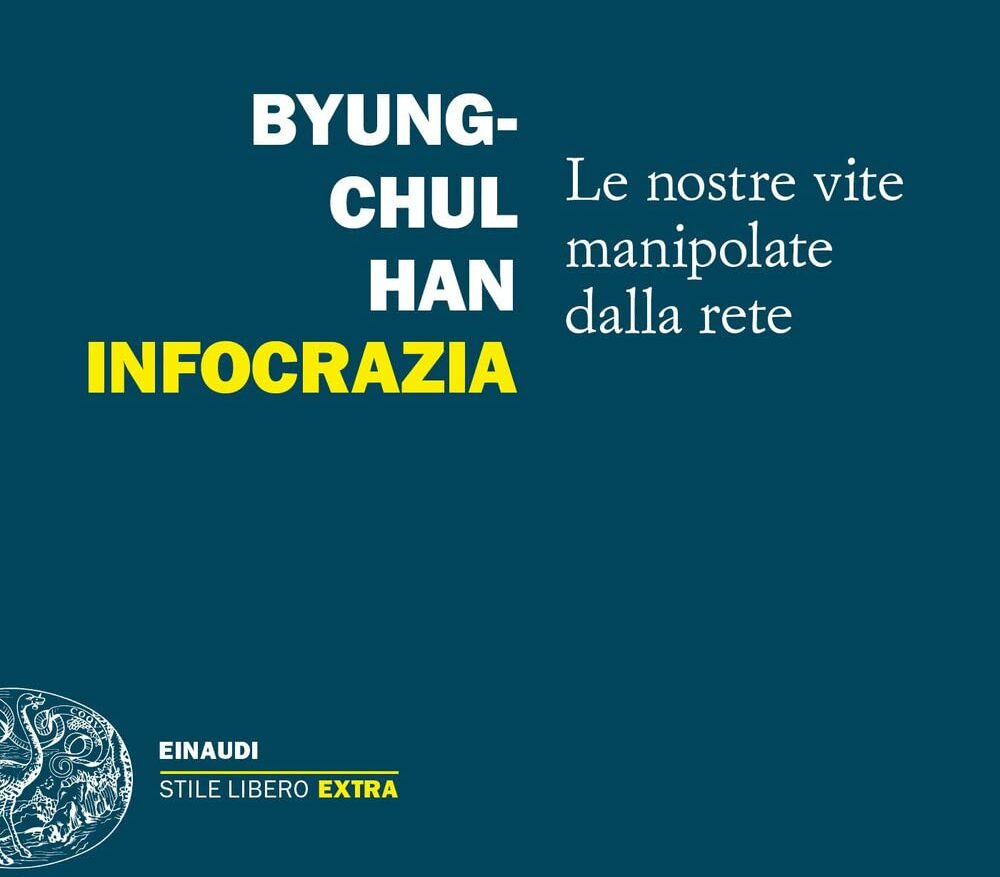The philosopher who does not philosophize on the net and on social networks

“Infocrazia” (Einaudi) by the philosopher Byung-Chul Han read by Tullio Fazzolari
It's not good to name names but it won't take a great stretch of the imagination to understand. A famous soccer player is photographed with a woman who is not his wife. That would be his and his wife's business. But in the age of the internet, dirty laundry can no longer be washed in the family. Someone who has nothing better to do posts the photo on social media and the media storm breaks out, punctually accounting for marital crisis and divorce. The epilogue would probably have been the same but the beginning of the story and the speed with which everything happened was decided by the internet and not by those directly involved. And episodes like this happen every day even to non-famous people.
“Infocrazia” (Einaudi, 88 pages. 18.50 euros), the latest book by the philosopher Byung-Chul Han, highlights how our lives are conditioned or, better still, manipulated by the web. From facebook to twitter and who knows how many others, we have been seduced by the new means of communication without realizing that we were actually becoming prisoners of them. Politics is no longer done in the halls of parliament but by typing and the brevity of the message does not prevent, on the contrary, it facilitates the risk of saying blatant nonsense. Which happens regularly to our leaders too but it just seems that nobody cares. The important thing is to be there. Direct democracy based on representation has now been replaced by the democracy of presence in which the smartphone is a sort of mobile parliament thanks to which one can debate anytime and anywhere. And maybe even when it would be more appropriate to keep silent.
It is clear that modernization cannot be stopped, let alone rejected. But it falls to a philosopher like Byunh-Chul Han to point out its excesses and the unwanted effects it causes in human behavior. Typing makes you feel more free to express yourself which is true but up to a certain point because in reality you end up being watched by everyone. Even from those who can't or don't want to understand our thinking. The frenzy of continuous loop communication almost becomes a form of addiction. The incessant flow of data and news threatens to stun. And the speed with which one must interact does not always benefit the ability to reflect. Just look at what happens in politics: an immediate response is better than a more reasoned one.
According to Byung-Chul Han, the greatest danger is that the frantic pace of the web makes one lose one's sense of truth. It may be that his is an excess of pessimism. But he is absolutely right in sounding an alarm. The information of the 21st century is no longer that of scoops at any cost but that of fake news without control and almost always without denial. It is a new form of nihilism in which truth prescinds from reality. And it almost seems that what you type matters more than the facts. Looking ahead, it will be increasingly difficult to orient yourself and understand what the truth is. A tragic example comes from the war in Ukraine: it is almost impossible to distinguish between fake news and reliable information and to understand the real trend of the conflict. Then of course we can congratulate Elon Musk on the progress of artificial intelligence but it would not hurt to find a limit to stupidity in the flesh.
This is a machine translation from Italian language of a post published on Start Magazine at the URL https://www.startmag.it/innovazione/il-filosofo-che-non-filosofeggia-su-rete-e-social/ on Sat, 01 Apr 2023 06:40:15 +0000.
